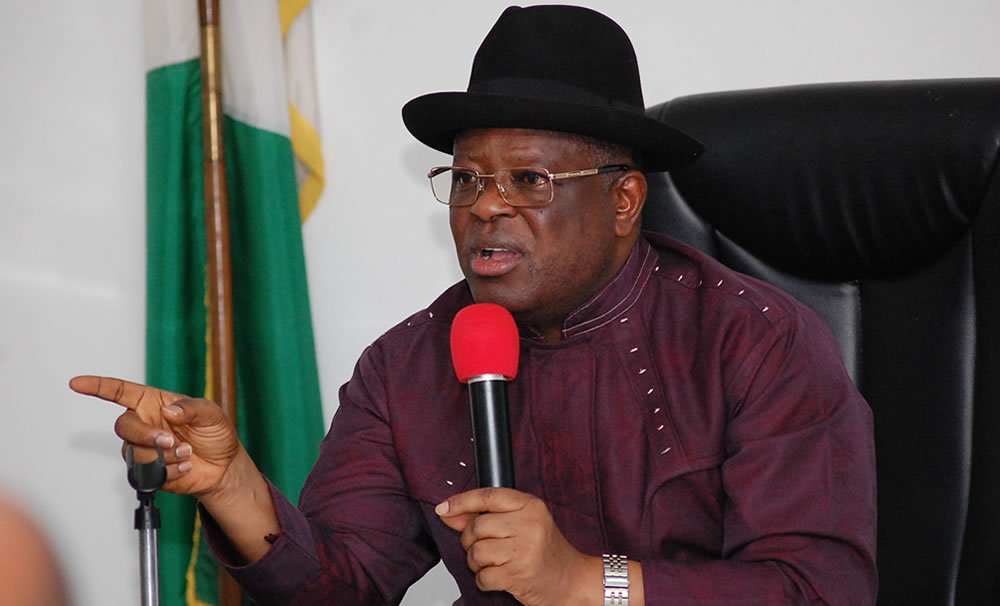The national public hearings on the proposal to review the Nigerian Constitution have become sources of stimulating and provocative views on the future of Nigeria. From the proposal to have the country renamed to the demand for state police, the frustration at the current state of the nation has been a shared grief. At least the commentaries, even among the supposed beneficiaries of Nigeria’s dysfunctions, suggest this Constitution is long overdue for thorough amendments.
On June 14, during a TV interview on Channels TV, Governor David Umahi of Ebonyi state imagined a Nigeria with six Vice Presidents, one each from the six geopolitical zones. “I have a different view about this restructuring thing,” he said. “…for example, there are certain valid suggestions that have been made, to have six vice-presidents in the country.”
Scrutinized poorly, Governor Umahi’s position may strike us as ridiculous and thus hastily dismissed. But even a lazy dedication to our history reveals that’s the best shot most of Nigeria’s ethnic groups have at occupying the second-highest position in the country. The office of the President, of course, is only analyzed today as some sort of inheritance, and the story is even more complex in the North.
The pan-Arewa politics, which mobilizes the entire nineteen states in the North to scramble for power as a unit has been a self-disadvantaged strategy that’s only favoured the North-West sub-region, with the North-East and the North-Central confined to the boys’ quarters of the power equation. Like the North, the South has three regions but each functions as an independent power bloc and agitates for equal representation at the centre.
The One North politics has been so oversold that it’s created an illusion of northern domination, and most times the outrage is squarely the inability of the South to grasp the complex realities of their fellow countrymen from the other side of the Niger. The entire three sub-regions of the North have been cast as one player, by their own design of course, and expected to occupy and exert the same political status as each of the South’s three units.
So, once a “northerner” occupies a position, it’s instantly expected to rotate among a south-westerner, south-easterner and south-southerner before the North has a shot at it again. Caught in the crossfire of this toxic politics isn’t the Southeast alone, which has been treated as a political outcast since the Nigerian civil war, but the Northeast and the North-central. This is why I find wisdom in Umahi’s position, but our solution differs slightly.
Umahi’s solution isn’t an alien idea. It was an outright call for devolution of power. The political adjustment he seeks in a presidential system of government was in progress in Nigeria before the military struck in 1966. So, Umahi’s Nigeria aligns with the Nigeria advocated by Governor Rotimi Akeredolu of Ondo State, about a month earlier, “a return to 1963 constitution.” The parliamentary system of government, sustained by the constitution until the first coup of 1966, provided a national power-sharing formula more inclusive than this perennial tyranny of the majority in place today. This was how Alhaji Abubakar Tafawa-Balewa, a Gere man from present-day Bauchi State, rose through party politics to become Nigeria’s first and only ever Prime Minister. He’s from a minority ethnic group and sub-region that wouldn’t have stood the chance of heading Nigeria in this American-style presidential system.
During the parliamentary system, which was designed to allow our lawmakers to produce executive leadership, the shot at national executive leadership was decided by party politics at the legislature. For instance, Northern Region-controlled Northern People’s Congress (NPC) and the Eastern Region’s National Council of Nigeria and the Cameroons (NCNC) allied to produce the Prime Minister and the President, with the Action Group (AG) of the Western Region as the opposition. When the NPC and the NCNC fell out over their positions on the 1962 census crisis, both parties sought different allies. NCNC embraced a faction of the AG and formed United Progressive Grand Alliance (UPGA), while NPC partnered with another faction of the AG for a coalition called the Nigerian National Alliance.
Nigeria has been paying for its refusal to develop a robust political party culture that isn’t built on demagogues. The 1963 Constitution isn’t the almighty formula, but it’s a brilliant reference material, especially on the danger of over-centralization of power. The centre has become a personal enterprise of a select group, with the victims forced to agree the seats of power are a mirage, and this should alarm all stakeholders.
That even a section of the governing elite is desperate to return to 1963 is a telling of the exclusion that has stalled Nigeria. Umahi’s solution is, no doubt, a call for another system of government, but it’s not absurd. All the key stakeholders of the constitutional review must acknowledge the crepitus of these misaligned groups, and build a power-sharing template that offers all geo-political zones equal seats at the national table.

 Join Daily Trust WhatsApp Community For Quick Access To News and Happenings Around You.
Join Daily Trust WhatsApp Community For Quick Access To News and Happenings Around You.


